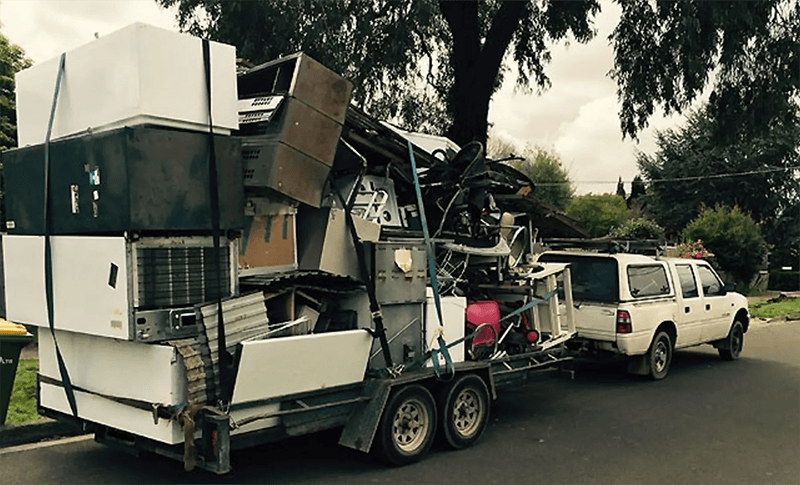GVWR what?... If I can fit it, I can haul it, right? .....WRONG.

You are out there looking to buy a trailer, and the salesman keeps throwing these weird numbers and terms your way. Capacity this, GVW that, when all you really want to know is what this trailer can haul. You have no idea what they are talking about, and now you are starting to get confused. No worries. The terms are simple, and so are the numbers. Let me explain.
The term for the trailer weight rating is GVWR: Gross Vehicle Weight Rating. This explains the total weight the trailer can hold, including the trailer. I want to stress the importance of that. The GVWR is the total load AND the weight of the trailer. The GVWR is commonly found on a sticker on the trailer. But what the sticker doesn’t tell you (in most cases) is the weight of the trailer itself. To calculate what your payload is, its simple. GVWR-EVW (that is empty vehicle weight)=Payload capacity. Simple.
Now I know you are saying, how do I know what the trailer weighs if it isn’t on the trailer itself? Good question. Information like this can be found on your registration, title, or certificate of origin of the trailer. If these avenues end up at a dead end, you can always take it to a weigh station to have it weighed. That way you will know for sure, 100% what you have. Also some manufactureres estimate the empty weight of the trailer. GVWR is Gross Vehicle Weight Rating. EVW is Empty Vehicle Weight. GVWR-EVW=Payload or what weight you can haul.
I want to take a little to explain the GVWR, and some important things to remember. This rating is the MAXIMUM load capacity. I can’t stress that enough. The MAXIMUM. Over loading your trailer can cause heaps of trouble not only when you get pulled over by the DOT, but it could also break the trailer. And just as important, remember that the GVWR is calculated from the weakest link in the trailer. Axle, Coupler, Tires, etc. are all considered when calculating the GVWR. You may have heavy tires on a trailer, but if the axle is light, then you have to go by the axle, or vice versa. The “weakest” ling of the trailer will ultimately determine the GVWR of the trailer.
Most trailer manufacturers try to balance all of the above out. They are looking to put heavy tires with an inadequate axle, and so on. These discrepancies tend to occr more with older trailers, or those built by someone. So you see, it is simple. Know the terms, know the right questions to ask, and you can figure out the payload of any trailer. Simple. And as I always say, when in doubt, ask.
Until next time….Happy Towing!
Questions? Call AJ's Truck & Trailer Center Now.
717-671-9115 • 844-673-7668